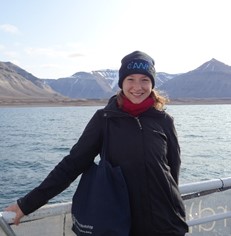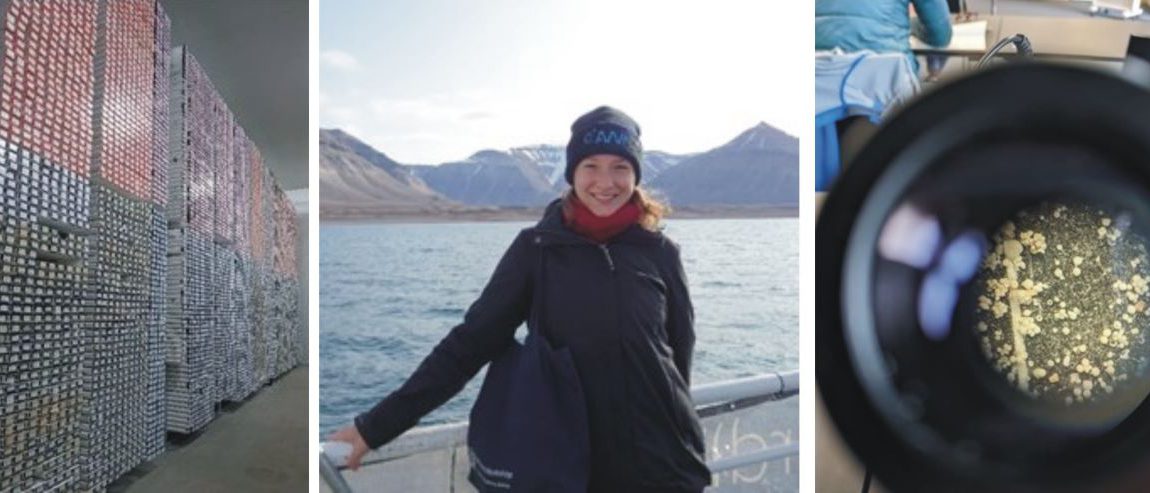
Shipboard Science but with less shaky legs – The ECORD Training Course 2023
ECORD training course
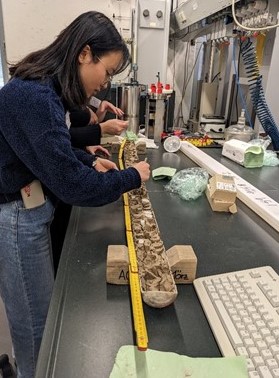
I am hopeful to one day join an IODP expedition as an inorganic geochemist, and so I travelled to Bremen, Germany in March 2023 to participate in the “ECORD Training Course” with the support of the EAG. The course is a so-called shipboard simulation, in which early-career scientists like myself are taught what it’s like to be part of the highly-motivated and expertly coordinated scientific staff of drilling teams such as the JOIDES Resolution or the Chikyu.
Course Experience
Through hands-on experiences during various themed lab exercises and accompanying lectures, 30 participants from 12 different countries and myself were prepared to follow a core-flow procedure across different scientific disciplines, which can only be described as a well-oiled machine. We undertook core descriptions for paleomagnetics, geochemistry and biostratigraphy, and it very quickly became clear that the most valuable resource of the ECORD Training Course is the extensive experience and expert knowledge of its instructors and lecturers. With MARUM (the Center for Marine Environmental Sciences at the University of Bremen) as the hosting institute, the course drew upon excellent and internationally renowned infrastructure including, the IODP core repository.
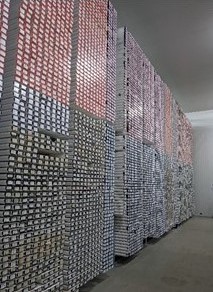
Benefits and Outcomes
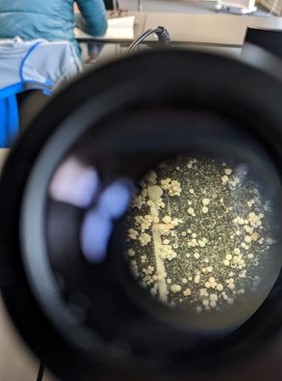
To me personally, and especially as a first year PhD-student, being introduced to ship-based research and its routines and priorities through practical training was a highly rewarding experience, and certainly prepared me for expeditions to come. In addition to topics and methods which I will directly benefit from in my PhD project, to get a glimpse into disciplines that I’ve never worked in before, was something I found to be very enriching and interesting. To be taught by inspiring professionals and to be surrounded by students from many different scientific backgrounds was a great opportunity to connect and discuss, and also to explore the wonderful city of Bremen together. With so many students from such a variety of institutes and countries, each of us had a unique perspective on their discipline, academic career and expectations regarding IODP and drillship-science in general, and conversations often evolved from a simple question to a thorough and multidimensional discussion. To conclude, participating in the ECORD Training Course this year was a highly beneficial experience to me, not only from a professional standpoint, but also on a personal level. It was very well organized with an intense schedule and diverse practical training and lectures. I recommend the course to anyone who is interested in ship-based marine research as a preparation for expeditions.

